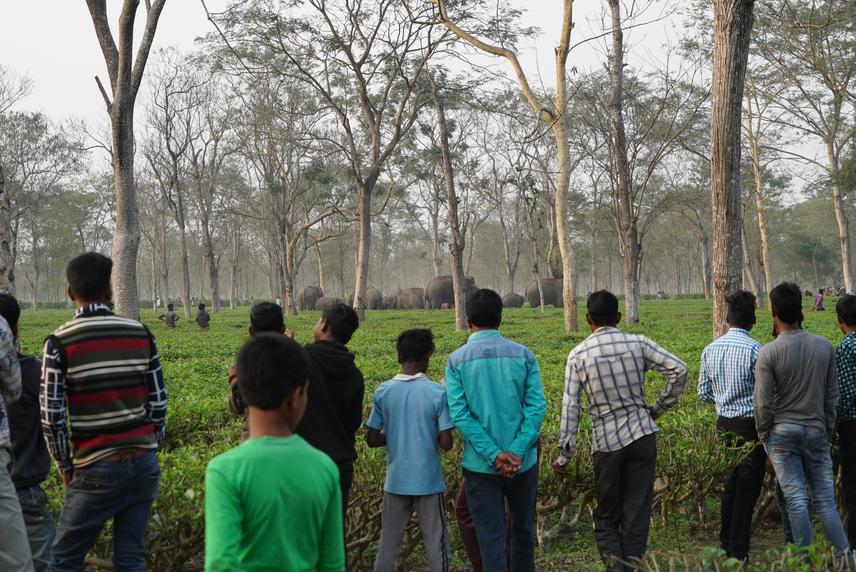Aritra Kshettry
Other projects
3 Feb 2015
A Study of People-Wildlife Relationships in a High Conflict Region of Northern West Bengal to Identify Feasible Conflict Resolution Methods
29 Apr 2019
People, Elephants and Leopards: Synthesis of Social and Ecological Knowledge in Mitigating Conservation Conflicts in an Indian Biodiversity Hotspot
24 Jun 2021
Scaling Up a Successful Conservation Model: Safer Shared Spaces between People, Elephants and Leopards
Northern West Bengal is an important biodiversity hotspot in north eastern India. Large populations of elephants are present in a high density human landscape that is dotted by small Protected Areas. In this project we want to use recent research along with traditional knowledge in order to devise locally usable mitigation measures to reduce damage to property and human lives caused by elephants. An important aspect of our proposed project is to involve important stake holders in the mitigation work so that at the end of our work the community is empowered to deal with conflict reduction actions.

An elephant herd moving across a tea-estate at the project site.
Successful and sustainable conservation of large, potentially dangerous mammals in human use areas is particularly challenging amidst high human populations. However, studies find that co-habitation between people and large wildlife may be possible with minimum conflict when the negative impacts of wildlife conservation on local people are minimized. Local support for wildlife conservation as a result of reduced losses and threats to people may aide in conserving threatened species such as the endangered Asian elephant in shared spaces such as agro-forestry landscape mosaic.
The proposed project will be a continuation of our studies of people-wildlife interactions in a biodiversity hotspot of north-eastern India, where elephant have high negative impacts on local peoples’ lives and livelihoods. More than 40 people are injured by elephants and 30 fatalities occur each year due to sudden encounters with elephants. Significant crop loss and also adds to the negative impacts. We have identified critical areas in the larger landscape and also engaged with local stakeholders to identify mitigation measures which may be adopted to minimize losses. We now focus to understand if the current mitigation measures practised in the landscape by the Forest Department are effective in reducing conflict. Furthermore, we also want to identify the effect of the current mitigation measures on elephant behaviour to empirically evaluate the role of aggressive tactics such as elephant drives (where elephants are chased away from human habitations using loud noises and crackers) on the behaviour of elephants and the propensity to damage human life and property.
The proposed project will be trans-disciplinary in nature using perspectives in social sciences as well as elephant ecology. We will undertake a series of interviews to understand if elephant drives are effective in reducing crop damage and also if compensation paid due to human life loss and/or crop damage is effective in mitigating negative attitude towards elephants in the region. Elephant behavior observations will look at the frequency of stress related behaviour during ‘drives’ and its impact on elephants. The overall aim of the project is to assess the efficacy of current conflict mitigation strategies and to devise alternate methods that would enable safer shared spaces between people and elephants to ensure long term sustainable conservation of the critical trans-boundary elephant movement route of northern West Bengal.